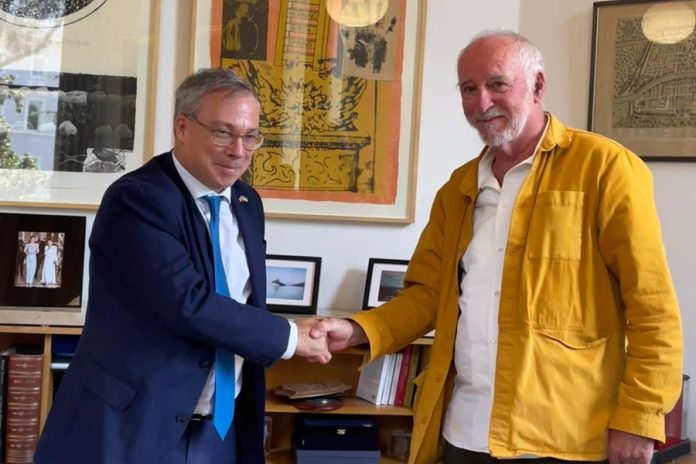David Petrie reports on the recent developments in the fight to secure damages for foreign lecturers in Italy.
Lawyers acting for ALLSI, the Association of Foreign Lecturers in Italy, have lodged a case, 8 August 2024, with the European Court of Human Rights (ECHR) in Strasbourg, seeking damages totalling €352,450 for violation of the right to a fair trial, under Article 6 of the European Convention on Human Rights, and violation of the right to a fair trial on the grounds of unreasonable duration.
Two British lecturers, Robert Coates and Dermot Costello (who also holds Irish citizenship) were first employed by the University of Brescia in 1986. They were paid less than their Italian colleagues and consistently less than that stipulated by the legal framework (Italian law 63 of 2004) approved by the Court of Justice of the European Union (CJEU) on 18 July 2006 as having the potential to remove the illegitimate discrimination based on nationality that the Court had found in 2001.
Thirty-three miles to the west of Brescia lies the University of Bergamo, where colleagues employed there under the same legal framework as the Brescia two are being paid more than double and are also receiving pension and social security contributions commensurate with law 63 of 2004.
Thirty-six miles to the west of Bergamo is the University of Milan, where 33 lecturers accepted €5.4 million in compensation and the dispute was closed.
Mr Coates and Mr Costello, and indeed hundreds of their colleagues throughout Italy, have been let down both by their employers who deny liability, and by inconsistent and contradictory rulings in Italy’s lumbering courts.
In 2011 a Brescia labour court awarded them damages totalling €282,811 for arrears on unpaid wages, in line with law 63 of 2004 and the case law of the CJEU. However, the University of Brescia appealed, citing the so called Gelmini law of 2011 and subsequent supplementary measures retroactively reinterpreting and leapfrogging the binding judgments of the CJEU of 2001 and 2006.
When there appears to be a conflict between EU law and national law, Article 267 of the EU Treaty stipulates that a lower court ‘may’ refer the case to the CJEU for a preliminary ruling on how the law is to be interpreted, and that a final court ‘against whose decisions there is no judicial remedy under national law’, that court or tribunal ‘shall’ bring the matter before the Court.
Despite the request by our lawyer, Professor Lorenzo Picotti of the Verona Bar, who has successfully pled two foreign lecturers cases in the CJEU, both the Brescia Court of Appeal and the Court of Cassation refused to refer to the CJEU. It is this refusal that prematurely blocks their access to a fair trial along with the unreasonable duration of the trials that were first brought in 1994 that forms the substance of the present application to the ECHR for damages.
Professor Avv. Picotti issued the following statement:
‘It is important and necessary to refer the matter to the European Court of Human Rights, because national judges are not applying European Union law nor the judgments of the Court of Justice. This can be evidenced by the fact that the European Commission has had to initiate a third liability case against Italy to deal with the ongoing discriminatory treatment of foreign mother tongue lecturers in Italy; the seventh case since 1989 that the CJEU will adjudicate.
‘It is very serious indeed that not even the Court of Cassation has requested the Court of Justice itself for a preliminary interpretation of the rules in question. For this reason it is essential to get a judgment from the Strasbourg Court, as the guarantor of the rights of citizens, who can directly appeal under the Convention and get a pronouncement on this persistent unfairness.’
This new dimension in the European Court of Human Rights will present Italy with a massive headache of its own making. The European Court of Human Rights considers two years duration in normal cases to be reasonable. The Coates and Costello case has now lasted for two decades.
Worse, Italy now risks a plethora of compensation applications to the Strasbourg Court from foreign lecturers similarly tied up for years in Italy’s dis-functioning courts in Bologna, Catania, Florence, Naples, Milan IULM, Pisa, Roma, Florence, Salento, Siena, Venice and Verona.
Successive Italian governments have shown a willingness to introduce retroactive legislation in order to influence the outcome of scores of legal cases that are pending. Alarm bells should be ringing at the offices of the European Union: Italy, a founder member of the EU, is turning its back on a rules-based legal order.
Governments of the United Kingdom have been conspicuous in their support for British lecturers in Italy, with the former UK Minister David Lidington describing Italy’s behaviour as ‘both immoral and illegal.’
At a meeting in the Rome Embassy on 29 July 2024, British Ambassador Edward Llewellyn pledged his support. We are seeking a meeting with the Minister in the UK Cabinet Office for relations with the EU, Nick Thomas-Symonds, who met us in Westminster in 2017 along with his constituent, Ms Judith Evans, who is now fully compensated by the University of Bergamo.





